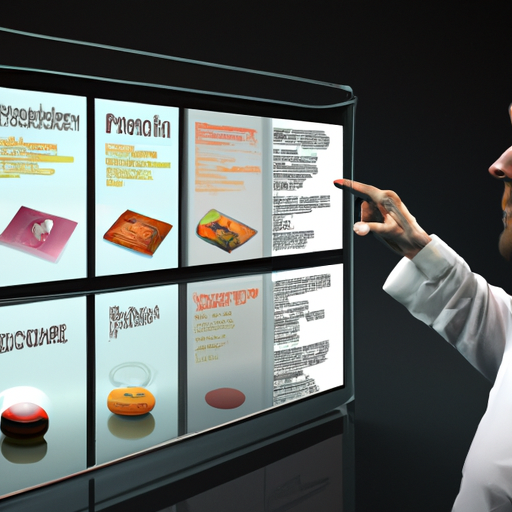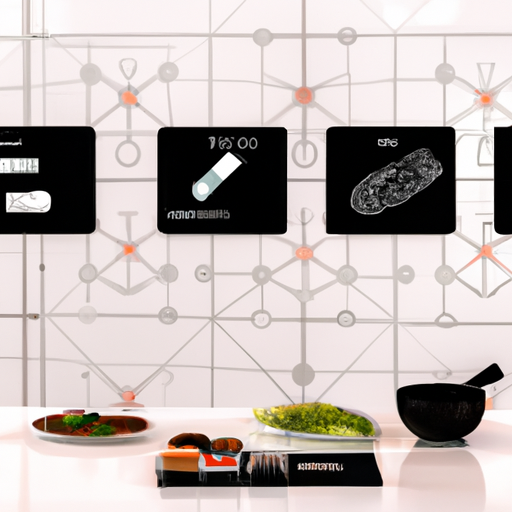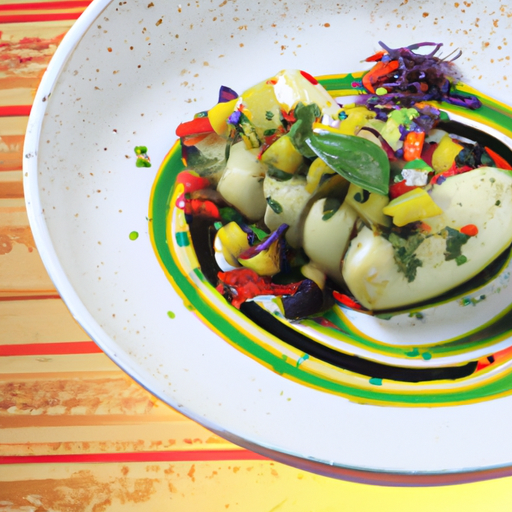Artificial intelligence is transforming the way new recipes are created and tested in professional kitchens. Machine learning algorithms are analyzing flavor combinations and cultural food preferences at an unprecedented scale. This technological revolution is ushering in a new era of data-driven culinary innovation.

The intersection of artificial intelligence and culinary arts marks a revolutionary moment in food innovation, where traditional cooking meets cutting-edge technology. This fusion is fundamentally changing how recipes are developed, tested, and refined, opening up new possibilities for creative expression in the kitchen.
AI-powered recipe development begins with vast databases of ingredients, flavor compounds, and traditional recipes from around the world. Machine learning algorithms analyze these datasets to identify patterns in successful flavor combinations and cooking techniques, suggesting novel pairings that human chefs might never have considered.
One of the most significant advantages of AI in recipe development is its ability to process and analyze massive amounts of data quickly. While a human chef might spend years experimenting with different combinations, AI can simulate thousands of potential recipes in minutes, identifying promising combinations based on molecular compatibility and historical success rates.
The technology goes beyond simple ingredient matching. Advanced AI systems can now consider factors such as texture, temperature, and mouthfeel, creating multi-dimensional recipes that appeal to all aspects of the dining experience. These systems can even account for seasonal availability and regional preferences, making them valuable tools for menu planning.
Professional kitchens are increasingly incorporating AI tools into their research and development processes. These tools can help predict how well new dishes will be received by analyzing customer preference data and current food trends. This capability is particularly valuable for restaurants and food manufacturers looking to develop new products.
The role of the chef remains central in this technological revolution. Rather than replacing human creativity, AI serves as a powerful tool that enhances and expands the possibilities available to culinary professionals. Chefs use AI-generated suggestions as starting points for their own experimentation and refinement.
Machine learning algorithms are also being used to optimize cooking processes. By analyzing data from sensors and cooking equipment, these systems can suggest precise cooking times and temperatures for perfect results. This application is particularly valuable in commercial kitchens where consistency is crucial.
The impact of AI extends to dietary considerations as well. Advanced systems can modify recipes to accommodate various dietary restrictions while maintaining flavor profiles and textures as close as possible to the original dishes. This capability has made it easier to create inclusive menus that cater to diverse dietary needs.
Sustainability is another area where AI is making significant contributions. By analyzing the environmental impact of different ingredients and cooking methods, AI can suggest more sustainable alternatives without compromising on taste or quality. This feature is becoming increasingly important as restaurants focus on reducing their environmental footprint.
The technology is also transforming how recipes are tested and refined. AI systems can predict how changes in ingredients or proportions will affect the final result, reducing the need for multiple physical test batches. This capability saves time and resources while accelerating the development process.
For home cooks, AI-powered cooking apps and platforms are making sophisticated recipe development more accessible. These tools can suggest personalized recipes based on available ingredients, dietary preferences, and skill level, helping users expand their culinary horizons.
The future of AI in recipe development looks particularly promising. As the technology continues to evolve, we can expect to see more sophisticated applications that incorporate real-time feedback from diners, environmental data, and global food trends to create increasingly refined and innovative recipes.
However, it's important to note that AI is not without its limitations. The technology still struggles with certain aspects of cooking that rely heavily on human senses and intuition. The art of cooking remains a fundamentally human endeavor, with AI serving as a powerful tool rather than a replacement for human creativity.
Looking ahead, the integration of AI in culinary innovation will likely continue to deepen. We may see more advanced systems that can consider cultural context, personal memories, and emotional associations with food, creating recipes that resonate on both a physical and emotional level.
The marriage of AI and culinary arts represents an exciting frontier in food innovation. As these technologies continue to evolve, they will undoubtedly lead to new discoveries and possibilities in the world of cooking, while preserving the essential human elements that make food such a powerful part of our lives.



